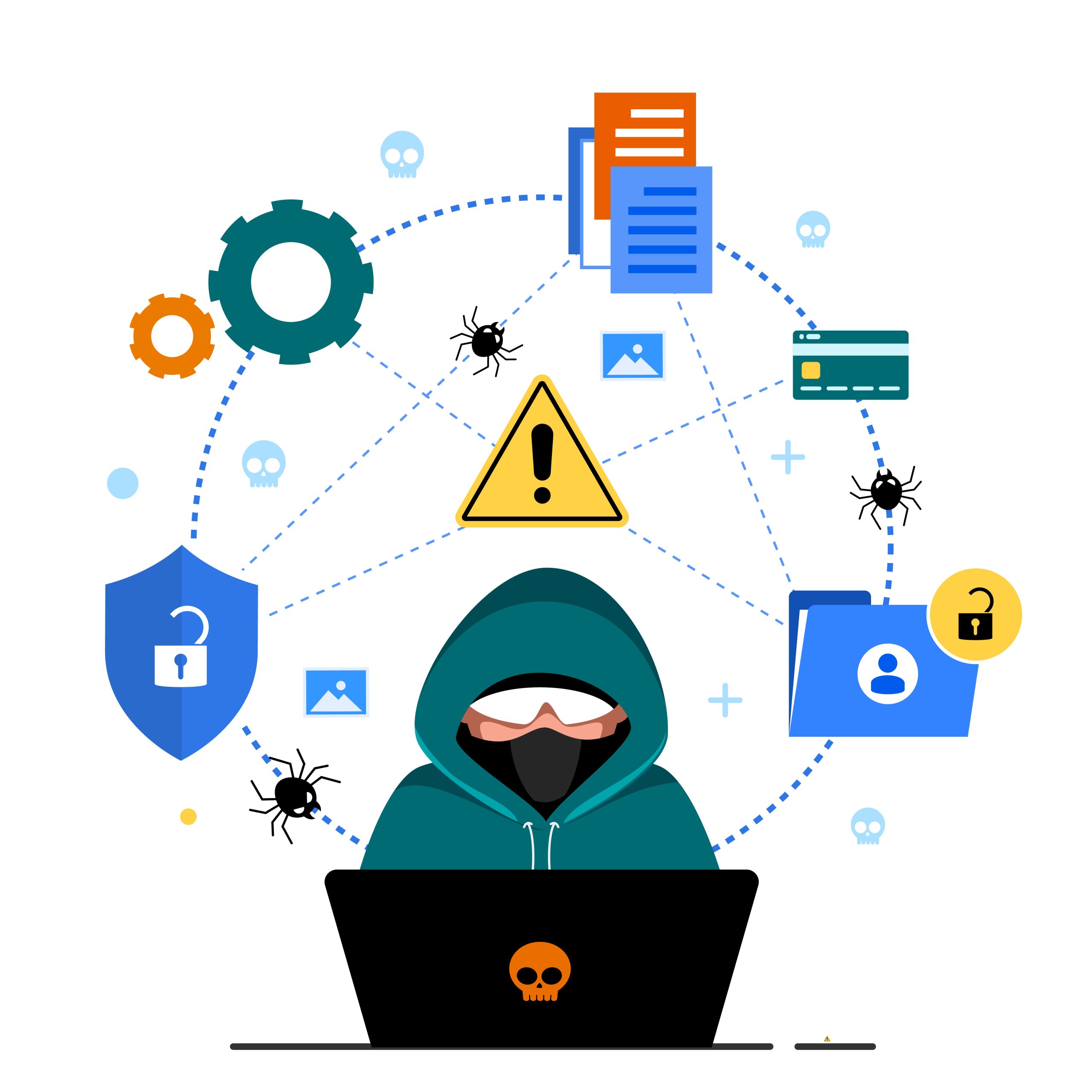Unveiling Google Dorks: Impact and Exploration
Cyber SecurityUnveiling the Arcane: A Comprehensive Exploration of Google Dorks and Their Impact on the Digital Landscape
The internet, a sprawling digital realm, stores a vast repository of information – readily available content intermingled with meticulously guarded secrets. While search engines like Google excel at surfacing relevant data, a clandestine layer exists, accessible only through a specific set of queries known as Google Dorks. This article embarks on a detailed expedition into the world of Google Dorks, meticulously dissecting their functionalities, applications, and the ethical considerations that govern their use.
Unveiling the Power: Delving into the Functionality of Google Dorks
Google Dorks, often referred to as Google Hacking or Google Hacking Queries, are essentially advanced search techniques that leverage Google’s search operators and filters to pinpoint specific information on the web. They function as metaphorical digital keys, unlocking doors to hidden data that conventional search methods would struggle to unearth. At their core, Google Dorks empower users to target their searches with unparalleled precision. This meticulous approach allows for the retrieval of a diverse range of information, including:
Vulnerable Web Pages: By identifying weaknesses in website structures and configurations, Google Dorks can expose security gaps that malicious actors could exploit. Imagine a crumbling castle wall – Google Dorks act as digital battering rams, highlighting these vulnerabilities so that security professionals can address them before a breach occurs.
Unveiling Sensitive Documents: Confidential files, such as internal reports or financial spreadsheets, can sometimes be inadvertently left accessible online. Google Dorks, acting like digital bloodhounds, can sniff out these hidden documents, highlighting a potential security lapse and the importance of robust data security practices.
Unearthing Login Credentials: Hackers can employ Google Dorks to hunt for login pages and even potentially uncover usernames and passwords left exposed on websites. This underscores the criticality of strong password management and the implementation of secure login protocols like two-factor authentication.
Demystifying the Magic: A Guided Tour Through Google Search Operators
The true power of Google Dorks lies in their utilization of specialized search operators. These operators function as filters, meticulously refining the search results to unearth the most relevant information. Here’s a comprehensive breakdown of some commonly used operators:
intitle: Narrows the search to web pages with specific keywords within their title tags. For instance, “intitle:login” retrieves pages with “login” in the title, potentially indicating login portals.
inurl: Focuses the search on URLs containing particular keywords. A search for “inurl:admin” would return results with “admin” present in the URL, possibly leading to administrative dashboards.
site: Restricts the search to a specific website or domain. “site:example.com” would only display results from the website “example.com”.
filetype: Targets specific file formats like PDFs or DOCX documents. “filetype:pdf” would exclusively return results in PDF format.
intext: Searches for keywords within the body text of a webpage. “intext:password” would find pages containing the word “password”, potentially revealing password reset instructions or insecure storage practices.
By strategically combining these operators, users can craft highly customized Google Dork queries, yielding incredibly precise results. Imagine a skilled cartographer – Google Dorks empower users to create detailed maps, navigating the vast digital landscape with unparalleled precision.
The Ethical Landscape: Navigating the Moral Compass of Google Dorks
While undeniably powerful, Google Dorks come with a significant ethical responsibility. Their ability to unearth sensitive information can be misused for malicious purposes. Here are some key points to consider:
Legal Repercussions: Employing Google Dorks to access unauthorized data or exploit vulnerabilities constitutes a cybercrime. Responsible use is paramount. Utilizing Google Dorks for malicious purposes can lead to severe legal consequences.
Respecting Privacy: Unethical use of Google Dorks can be a serious privacy violation. It’s crucial to obtain proper authorization before utilizing these techniques on private systems. Respecting user privacy is an essential tenet of ethical computer use.
Security Testing with Permission: Google Dorks are valuable tools for ethical hackers and security professionals performing authorized penetration testing to identify and address security weaknesses within a system. With proper authorization, Google Dorks can be instrumental in strengthening a system’s defenses.
Beyond the Basics: Unveiling Advanced Techniques for the Discerning User
The world of Google Dorks extends far beyond a simple list of operators. Advanced users can leverage techniques such as:
Boolean Operators (AND, OR, NOT): These operators allow for complex search queries, enabling even more precise filtering of results. For instance, “site:bank inurl:login AND NOT intitle:error” would search for login pages on banking websites, excluding those with “error” in the title, potentially indicating functional login portals.
Regular Expressions: For highly specific searches, regular expressions can be incorporated into Google Dorks, offering granular control over search patterns. Imagine a skilled jeweler meticulously examining a diamond – regular expressions allow users to scrutinize search patterns with unparalleled precision. By incorporating patterns and symbols, users can craft highly targeted Google Dorks to unearth even the most obscure information.
Here’s an easier-to-understand example of a Google Dork using a regular expression, without the technical jargon:
Imagine you’re looking for a lost document on your computer. You know it’s a Word document (“.doc” file) and it has the word “confidential” in the title. You also vaguely remember there being a date somewhere in the document, but you can’t recall the exact format (e.g., 03-14-2024 or 3/14/2024).
This Google Dork can help you find it:
filetype:doc intitle:”confidential” (like “XXX-XX-XXXX” OR like “XX/XX/XXXX”)
Breaking it down:
filetype:doc – This tells Google to only search for Word documents (.doc files).
intitle:”confidential” – This narrows the search to documents with “confidential” in the title.
(like “XXX-XX-XXXX” OR like “XX/XX/XXXX”) – This is the regular expression part. It tells Google to search for documents that have either format:
“XXX-XX-XXXX” (where X represents any number) – This covers dates like 03-14-2024.
“XX/XX/XXXX” – This covers dates written as 3/14/2024.
So, this Dork searches for Word documents with “confidential” in the title and also searches for dates written in either of those two formats. This increases your chances of finding the lost document without needing to remember the exact date format.
Important to remember: Regular expressions can get more complex, but hopefully, this example gives you a basic understanding of how they can be used in Google Dorks for simpler searches.
Dork Automation: Google Dorks can be automated using scripts or dedicated tools. This allows users to schedule regular searches or monitor specific websites for changes. Imagine a tireless guard patrolling a castle perimeter – automated Dorks can function similarly, continuously monitoring the digital landscape for potential security threats. While automation offers efficiency, it’s vital to ensure the Dorks are ethically designed and target only authorized systems.
The Dark Side: Exploring the Malicious Applications of Google Dorks
In the wrong hands, Google Dorks can be a potent tool for malicious actors. Here’s a glimpse into how they can be misused:
Identifying Vulnerable Systems: Hackers can leverage Google Dorks to pinpoint websites running outdated software or with weak configurations. These vulnerabilities can then be exploited to gain unauthorized access to systems.
Uncovering Login Credentials: As mentioned earlier, Google Dorks can be used to unearth login pages and potentially even usernames and passwords left exposed online. This stolen information can be used to gain access to accounts, steal data, or commit financial fraud.
Launching Phishing Attacks: By utilizing Google Dorks to identify email addresses, malicious actors can craft targeted phishing campaigns. These emails appear legitimate, potentially tricking users into revealing sensitive information.
These are just a few examples, and as technology evolves, so do the potential malicious applications of Google Dorks. It’s a constant battle between those who leverage these techniques for good and those who exploit them for nefarious purposes.
The Light Rises: Ethical Hacking and the Positive Impact of Google Dorks
Fortunately, Google Dorks are also instrumental in the ethical hacking community. Here’s how they contribute to a safer digital landscape:
Penetration Testing: Ethical hackers, with proper authorization, can employ Google Dorks to simulate real-world attacks during penetration testing. This proactive approach helps identify and address security weaknesses before they can be exploited by malicious actors.
Security Research: Google Dorks can be used by security researchers to identify new vulnerabilities and develop defensive strategies. Their findings can then be shared with the wider security community, ultimately strengthening the overall cybersecurity posture.
Raising Awareness: By demonstrating the power of Google Dorks, ethical hackers can raise awareness about the importance of strong cybersecurity practices. This empowers website owners and users to take steps to protect themselves from online threats.
Conclusion:
Google Dorks represent a powerful tool with a double-edged sword. While they can be misused for malicious purposes, their ethical applications are undeniable. By understanding their functionalities, limitations, and the ethical considerations surrounding their use, we can harness the power of Google Dorks to create a safer and more secure digital environment for everyone.
This article has provided a comprehensive exploration of Google Dorks, venturing beyond the introductory level and delving into advanced techniques and ethical considerations. Remember, with great power comes great responsibility. Let’s leverage Google Dorks for good and work towards a more secure digital future.

As a cybersecurity veteran of over a decade, Shubbhamm Lokhande is an accomplished technical speaker and writer, fervently spreading awareness about hacking and cybersecurity topics. Their extensive experience underscores a commitment to educating and empowering others in the digital realm.
